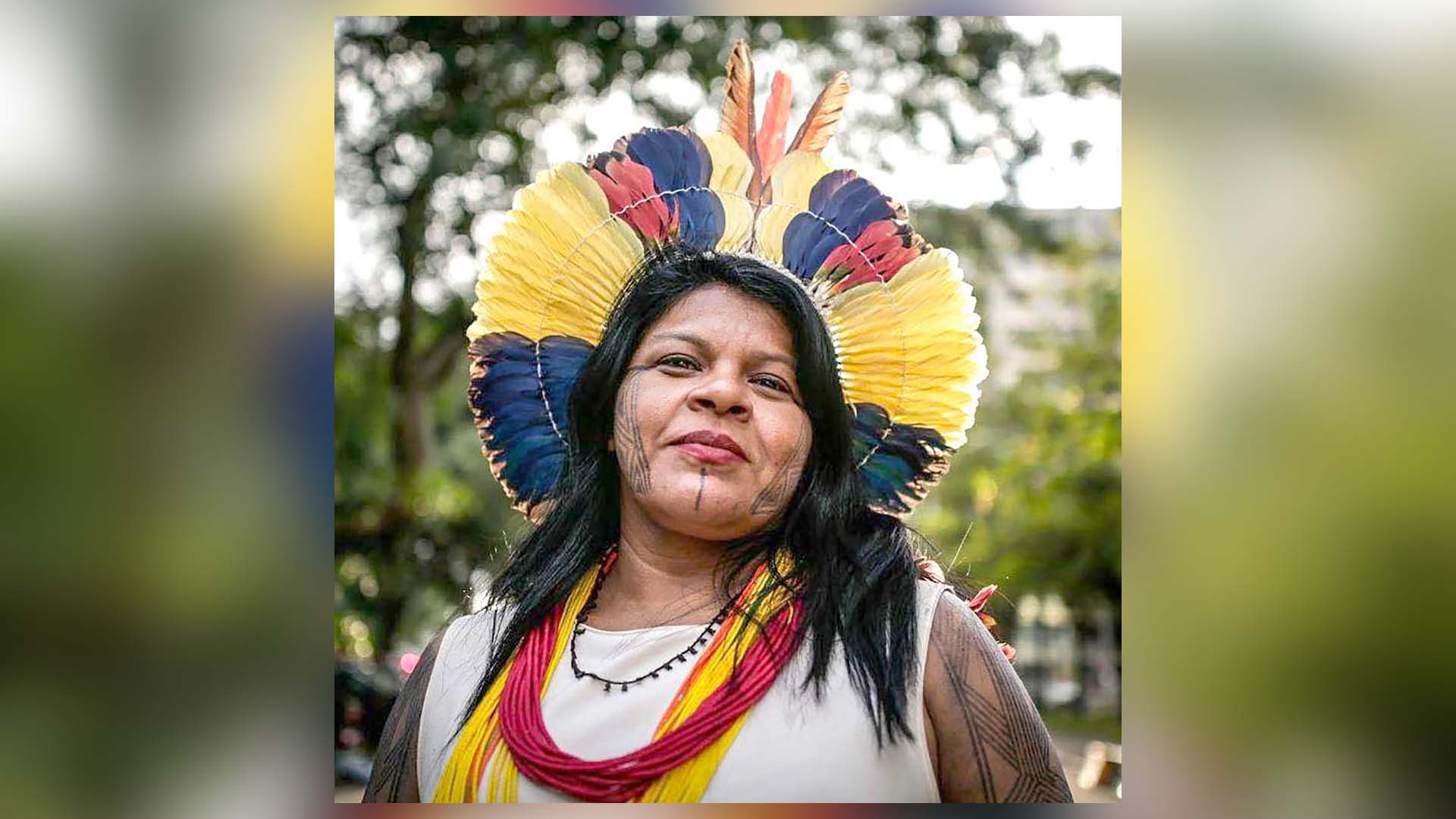“Indigenous Peoples have suffered from historical processes of prejudice and racism that for a long time delegitimized our voice in the public sphere. However, with a lot of struggle, we have been changing this reality. There is still a lot to achieve and spaces to occupy.”
Sonia Guajajara, an environmental and indigenous activist, and politician is born in Arariboia Indigenous Land in Maranhão.
The Guajajara people is one of the most numerous, with about 25,000 indigenous people, and are present in eleven indigenous lands, all in the state of Maranhão. Unfortunately, the Arariboia Indigenous Land holds the second highest number of invasions on the records in the state of Maranhão.
Sonia serves as the coordinator of Articulação dos Povos Indígenas do Brasil (APIB). She regularly participates and brings to a broader audience the stories of her people in international fora, such as the UN Human Rights Council and the UN Climate Negotiations. Her invaluable contributions to the indigenous movement of Brazil earned her various recognitions. In fact, she was recently named one of the 100 Most Influential Latinos Committed to Climate Action.
Sonia’s involvement in the indigenous movement made her a target of various attacks. The head of Brazil’s Institutional Security Office harassed Sonia on Twitter and accused her of harming the country. She is consistently subjected to harassment and criminalization by state agents, as attempts to silence and discourage her from continuing her fight for the rights of indigenous peoples.
Despite the horrendous attacks against her and the Guajajara people, Sonia remains resolute in defending their lands. She says that “[t]he Amazon is one of the most important forests in the world and the indigenous peoples who live in it have raised important issues in the public sphere, such as the protection of the immense biodiversity, the protection of the isolated peoples who live there and the importance of maintaining the forest standing for the climatic balance of the planet.”
She adds, “The Indigenous peoples of Brazil are not only in the Amazon, they are all over the Brazilian territory, in other important biomes, that are also being deforested, burned and degraded by agribusiness and mining companies. The key issue of Brazilian Indigenous peoples to the world is that large corporations would stop investing in companies that bet on a development model that presupposes our death and the destruction of our territories.”
Sonia also emphasizes the value of having government representation for Indigenous peoples to ensure that their voices will be heard. She notes, “Only then we will be able to advance the public policy agenda. We will no longer be waiting to be represented by others. Our strategy, for some time now, is to demarcate the polling stations, and not only our lands.”


%2020.49.20.png)
